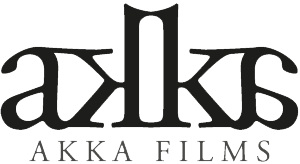
76 minutes – 2012
Titre en français
Si près si loin
Production
Co-production with:
Tradam (Switzerland)
Haute école d’art et de design (HEAD) – Geneva (Switzerland)
RTS Radio Télévision Suisse
Synopsis
Bolivia in the 1950s: on the Island of the Sun in the middle of Lake Titicaca. Alberto Perrin films the indigenous people, who have just gained their independence through agricultural reform and the revolution in 1952. In 2011: Carmen Perrin, artist and Alberto Perrin’s daughter, delivers these films to the native inhabitants. There is no need for nostalgia, for the ancient customs and spirit of freedom shape life within the community still today, despite the pressures of the tourism industry. Memories are awakened, ideas are conceived and new ties are forged in this sacred land. A cinematographic journey.
Festivals & Awards (selection)
Visions du Réel, Nyon, World Première, 2012
NYIFF, New York International Film Festival, Los Angeles, 2012
– Best Historical Documentary –
36. Mostra Internationale de São Paulo, 2012
Festival de cinéma de Mar del Plata, Argentina, 2012
(lire plus)
Sales & distribution
Distribution Switzerland: Tradam SA
Trailer:
For the film « so close so far », I was especially interested in the relation between a landscape, the history of community that lives within and the way this influenced a visual artist in her deeper personality as she knew the place as a child.
Carmen Perrin invited me to visit the Sun Island she knew as a child, before her family had to leave Bolivia for political reasons. She was only 6 years old when she left and her souvenirs are made of fragments of this landscape and of the special relation her father had with the villagers. He was not only filming them to show their rituals at the time of the agrarian reform, but he was also trying to cope with the inheritance of his family, owners of half of the Island until the 1952 Revolution. This conflict deeply influenced Carmen Perrin’s personality, both as a woman and as a visual artist working in landscape in various contexts.
As a filmmaker, I was interested in capturing what could emerge between Carmen and the villagers, the descendent of those her father filmed in the 50’s. This had to do with her art, but, most important, the film could reveal the distance we experience in our lives with the others. In this film I could link both art and politic, individual and collective destinies, old footages and frontal documentary approach and all this let me experience a true filmic experience that I have a lot of pleasure to share.
Michel Favre
Credits
Directed by: Michel Favre
Written by: Michel Favre, Carmen Perrin
Production: Joëlle Bertossa (Akka Films), Michel favre (Tradam)
Co-production: Irène Challand & Gaspard Lamunière (RTS)
Cinematography: Michel Favre, Elmer Mamani, Raphael Frauenfelder
Editing: Orsola Valenti
Location Sound Mix: Ramiro Fernando Valdez Guzmán, Michel Favre
Sound Editing: François Wolf
Sound Mix: François Wolf
Music: Peter Scherer, Pascal Schärli
Awards
NYIFF, New York International Film Festival, Los Angeles, 2012
– Best Historical Documentary –
International Film Festival for Environment, Health, and Culture, Jakarta, 2013
– Mention Honorable –
9. Festival Internacional de cine de los derechos humanos de Bolivia, 2013
– Premio Pukanawi / Ojo Boliviano en la categoría largometrajes –
Festivals
Visions du Réel, Nyon, World Première, 2012
36. Mostra Internationale de São Paulo, 2012
Festival de cinéma de Mar del Plata, Argentina, 2012
Festival Filmar en America Latina, Genève, 2012
9. Globians Doc Fest Berlin, 2012
Festa Internacional da Francofonia São Paulo, CineSESC, 2013
8. Ethnographic Film Festival. Santiago de Compostela, España, 2013




